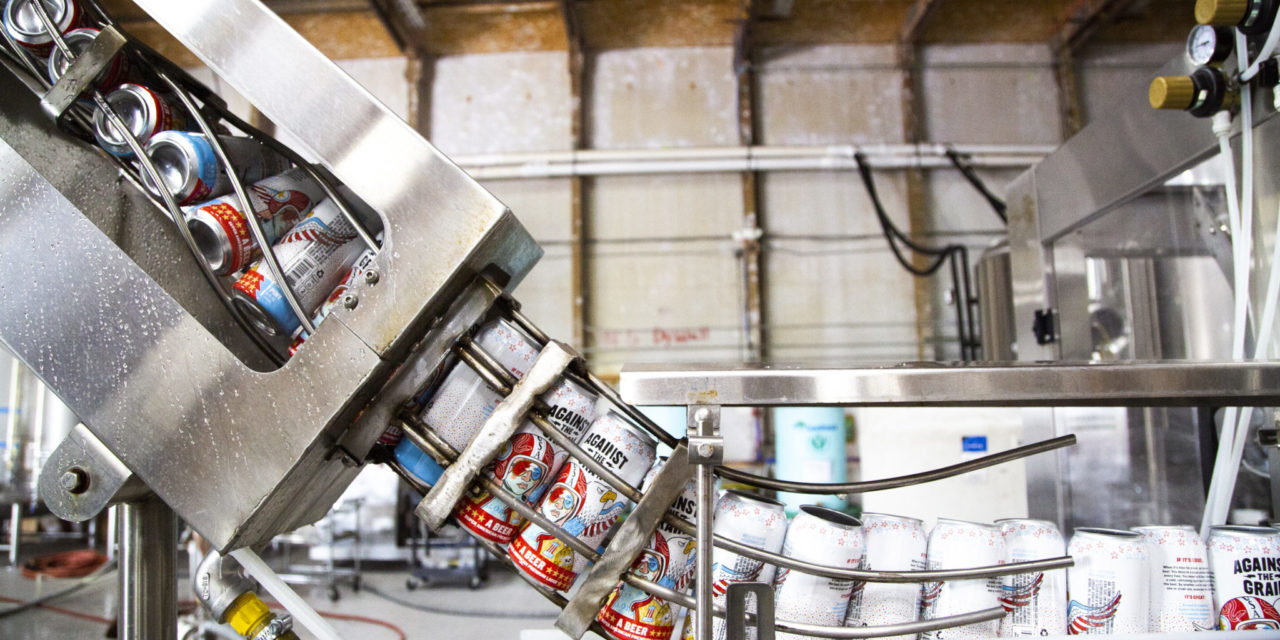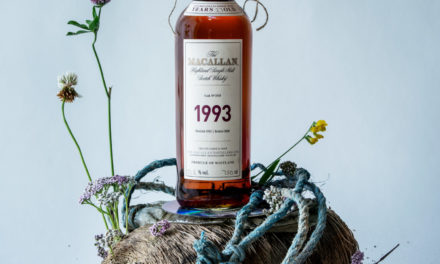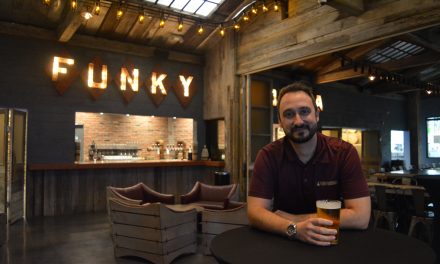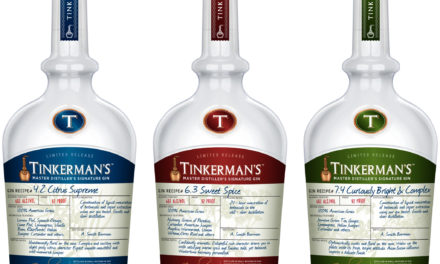Augie Carton didn’t need a scale to know he was packing on more pounds than he’d like. Carton founded Carton Brewing Company, along with cousin, Chris Carton, in his hometown of Atlantic Highlands, N.J., in 2011. About two years into the venture, he decided to enact lifestyle changes to help combat his creeping weight gain.
 Carton began an exercise regimen—eventually racing in several competitive running events—and studied as much about training and nutrition as he could. The more he learned, the more ideas he funneled into the brewery’s Highlander Weiss series of low-alcohol beers made with fruit additions and fermented with Lactobacillus.
Carton began an exercise regimen—eventually racing in several competitive running events—and studied as much about training and nutrition as he could. The more he learned, the more ideas he funneled into the brewery’s Highlander Weiss series of low-alcohol beers made with fruit additions and fermented with Lactobacillus.
“Beer naturally has electrolytes and carbs and, at a low alcohol of 3.9 percent, it gives you the muscle-relaxing benefits of moderate alcohol consumption in a 95-calorie package,” says Carton, who’s dropped more than 60 pounds since making his lifestyle changes. “From day one, we’ve been making these beers, based on our drive to offer a beer for each part of our community. They’re what I turn to after workouts, and now the trend has caught up!”
Recent studies give credence to the notion that low-alcohol beers can offer an assist in recovering from prolonged physical exertion—primarily the role of polyphenols in helping to reduce inflammation, and electrolytes in helping the body to rehydrate and replenish. In addition to appealing to active beer drinkers, craft brewers adding low-alcohol, lower-in-calorie options to their lineups are also tapping into more far-reaching trends.
According to International Wines and Spirits Record’s “Global Opportunities in Low- and No-Alcohol” report, released earlier this year, 52 percent of American consumers surveyed reported they were trying (or had tried) to reduce alcohol intake—whether for the calorie-conscious, health reasons, lifestyle choice, motivated by occasion, or otherwise. More than 70 percent of respondents, however, said they had not yet considered drinking low- or no-alcohol products, which currently account for just 0.5 percent of the total U.S. beverage alcohol market.
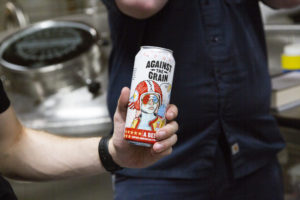 For brewers like Carton, this spells opportunity. Where past examples of low- and no-alcohol beers left much to be desired, today’s craft brewers are finding ways to infuse complex flavors and a fuller body into a svelte package.
For brewers like Carton, this spells opportunity. Where past examples of low- and no-alcohol beers left much to be desired, today’s craft brewers are finding ways to infuse complex flavors and a fuller body into a svelte package.
Dogfish Head Brewery, for example, built its Slightly Mighty Lo-Cal IPA around a base of monk fruit, rather than a traditional grain bill, to support a complex bouquet of hops while holding the beer to 95 calories and 4 percent ABV. Likewise, Against the Grain’s A Beer Super American Premium Lager, a recent release from the Louisville, Ky.-based brewery, packs four kinds of malts and six hop varieties into a 4.5 percent ABV beer. Grand Rapids, Michigan’s Founders Brewing Co., once best known for heavy-hitting beers such as Kentucky Breakfast Stout and Backwoods Bastard Scotch Ale, scored a major hit with its All Day IPA. At 4.7 percent, the beer was among the first “session” IPAs on the market when it was introduced in 2011, and now it accounts for more than half of the brewery’s annual production volume.
While breweries must exercise caution in touting the purported health benefits of their products, a proliferation of low-alcohol, lower-in-calorie beers from American craft brewers signals that the high-gravity trend may be lightening up—or, at least, that brewers are striving to include options for more drinkers and for every occasion.

